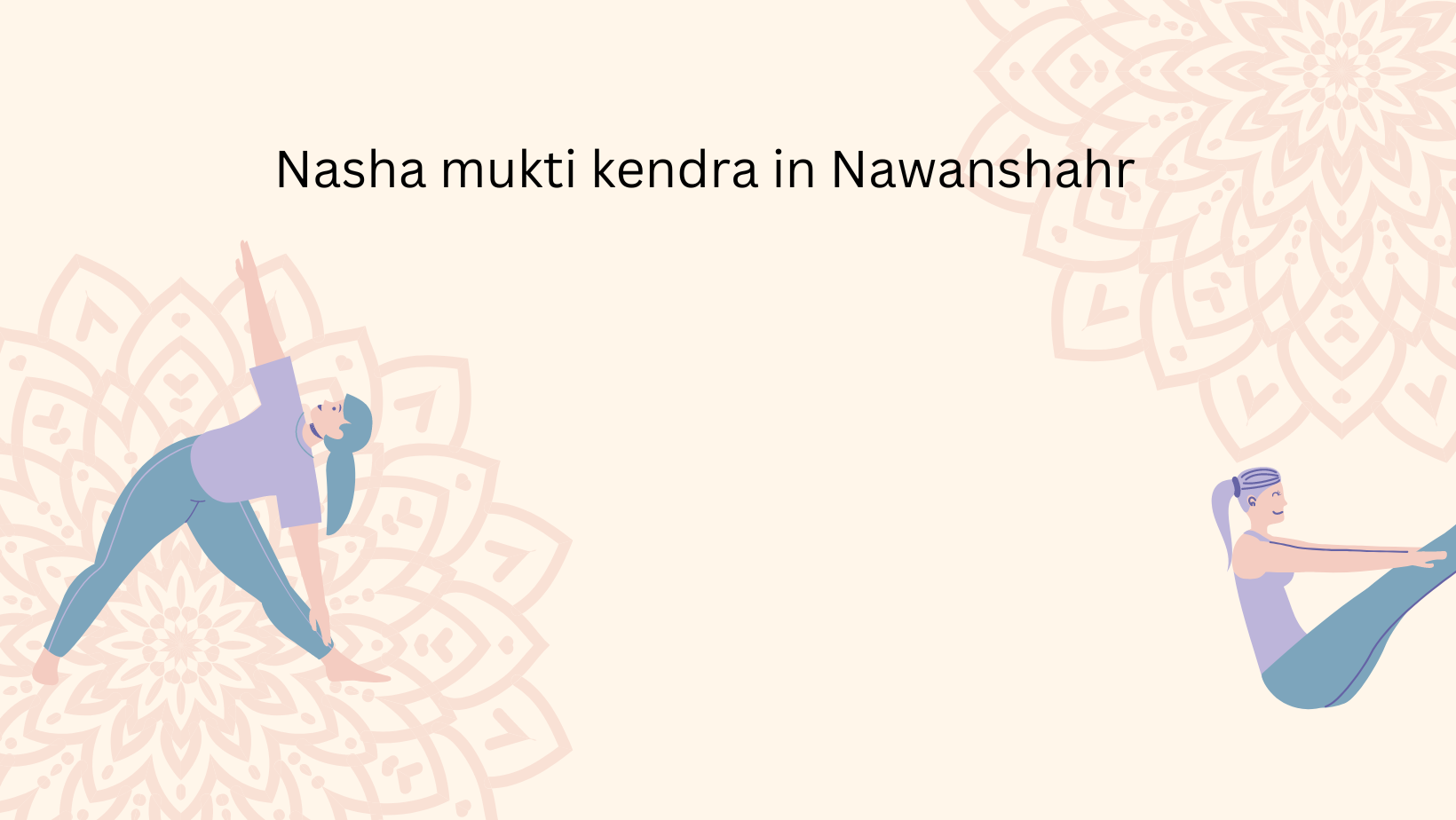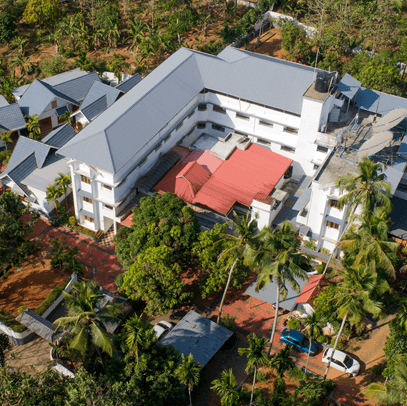What Are Co-Occurring Disorders in Addiction?
Addiction is a multifaceted issue that often intertwines with other mental health conditions. When an individual experiences both a substance use disorder (SUD) and a mental health disorder simultaneously, it is referred to as co-occurring disorders or dual diagnosis. Understanding the relationship between these conditions is critical for effective treatment and recovery.
In this blog, we’ll explore what co-occurring disorders are, their impact on individuals, the challenges in diagnosis and treatment, and the importance of integrated care. Programs like those offered at a Nasha Mukti Kendra in Nawanshahr focus on treating both addiction and mental health disorders to provide a holistic approach to recovery.
What Are Co-Occurring Disorders?
Co-occurring disorders refer to the simultaneous presence of a substance use disorder and a mental health condition in the same individual. Common mental health disorders that may co-occur with addiction include:
- Depression: Persistent feelings of sadness and hopelessness.
- Anxiety Disorders: Excessive worry, panic attacks, or phobias.
- Bipolar Disorder: Alternating episodes of mania and depression.
- Post-Traumatic Stress Disorder (PTSD): A condition stemming from traumatic experiences.
- Schizophrenia: Characterized by delusions, hallucinations, and disordered thinking.
These disorders can influence each other. For instance, a person with depression might use alcohol or drugs to cope, leading to an addiction. Conversely, substance abuse can worsen mental health symptoms, creating a vicious cycle. Treatment facilities like a Nasha Mukti Kendra in Nawanshahr address both conditions simultaneously to break this cycle.
The Connection Between Addiction and Mental Health
The relationship between addiction and mental health disorders is complex. Substance use can alter brain chemistry, potentially triggering or exacerbating mental health issues. Similarly, existing mental health conditions may increase the likelihood of substance use as a form of self-medication.
For example:
- A person with social anxiety may consume alcohol to feel more comfortable in social settings, risking dependency.
- Someone with PTSD may turn to drugs to suppress intrusive memories or nightmares.
Research indicates that genetic, environmental, and neurological factors play a role in this interconnection. This underscores the need for comprehensive care to address both issues, as done by specialized centers like a Nasha Mukti Kendra in Nawanshahr.
Challenges in Diagnosing Co-Occurring Disorders
Diagnosing co-occurring disorders can be challenging for several reasons:
- Overlapping Symptoms: Symptoms of addiction and mental health disorders often overlap, making it difficult to identify which condition is primary.
- Stigma: Many individuals hesitate to seek help due to the stigma associated with both addiction and mental illness.
- Complex Histories: Patients may have long-standing issues with both conditions, complicating the diagnostic process.
- Denial or Lack of Awareness: Individuals may not recognize their mental health symptoms or may downplay the severity of their addiction.
Accurate diagnosis requires trained professionals who can evaluate the individual’s full medical and psychological history. Facilities like a Nasha Mukti Kendra in Nawanshahr employ skilled clinicians who specialize in identifying and managing co-occurring disorders.
Treatment for Co-Occurring Disorders
Effective treatment for co-occurring disorders involves addressing both conditions concurrently. Integrated care is widely recognized as the best approach, combining mental health and addiction treatments into a cohesive plan.
1. Detoxification and Medical Management
For those with severe substance use disorders, the first step is often detoxification. This process helps to safely remove substances from the body while managing withdrawal symptoms. Medical supervision is crucial during this phase to ensure the individual’s safety and comfort.
2. Therapy and Counseling
Therapeutic interventions, such as cognitive-behavioral therapy (CBT) and dialectical behavior therapy (DBT), are essential for treating both addiction and mental health disorders. These therapies help individuals:
- Understand the root causes of their conditions.
- Develop coping strategies for triggers and stressors.
- Replace harmful behaviors with healthier alternatives.
Group therapy and family counseling can also be beneficial, fostering support and improving communication among loved ones.
3. Medication-Assisted Treatment (MAT)
In some cases, medications may be prescribed to manage mental health symptoms or reduce cravings and withdrawal symptoms. For example:
- Antidepressants for depression.
- Anti-anxiety medications for anxiety disorders.
- Medications like buprenorphine or naltrexone for opioid addiction.
Programs like those at a Nasha Mukti Kendra in Nawanshahr integrate MAT with other therapeutic approaches to provide comprehensive care.
4. Holistic and Lifestyle Approaches
Complementary therapies, such as yoga, meditation, and mindfulness practices, can help individuals manage stress and improve overall well-being. Encouraging healthy lifestyle changes, such as regular exercise and a balanced diet, also plays a crucial role in recovery.
The Importance of Integrated Care
Integrated care is the cornerstone of effective treatment for co-occurring disorders. Treating addiction without addressing underlying mental health issues increases the risk of relapse, while focusing solely on mental health may leave the root causes of substance abuse unaddressed.
Facilities specializing in dual diagnosis, like a Nasha Mukti Kendra in Nawanshahr, offer a multidisciplinary approach that brings together medical professionals, therapists, and support groups to ensure comprehensive treatment. This integrated model not only improves outcomes but also enhances the individual’s quality of life.
Preventing Relapse in Co-Occurring Disorders
Relapse prevention is a crucial aspect of long-term recovery for individuals with co-occurring disorders. Some strategies include:
- Continuing therapy and support group participation.
- Establishing a strong support network of family and friends.
- Developing healthy routines and stress management techniques.
- Identifying and avoiding triggers for both mental health symptoms and substance use.
A focus on aftercare, such as ongoing counseling and periodic check-ins, ensures that individuals stay on track with their recovery goals. Programs at a Nasha Mukti Kendra in Nawanshahr emphasize aftercare as a vital component of sustained sobriety and mental wellness.
Conclusion
Co-occurring disorders highlight the intricate relationship between addiction and mental health. These conditions can feed into each other, making recovery a challenging but achievable process. With accurate diagnosis, integrated treatment, and ongoing support, individuals can overcome both addiction and mental health challenges to lead fulfilling lives.
Treatment centers like a Nasha Mukti Kendra in Nawanshahr play a critical role in providing specialized care for co-occurring disorders. By addressing both conditions simultaneously, these programs help individuals break free from the cycle of addiction and mental health struggles, offering hope for a brighter future.














Post Comment